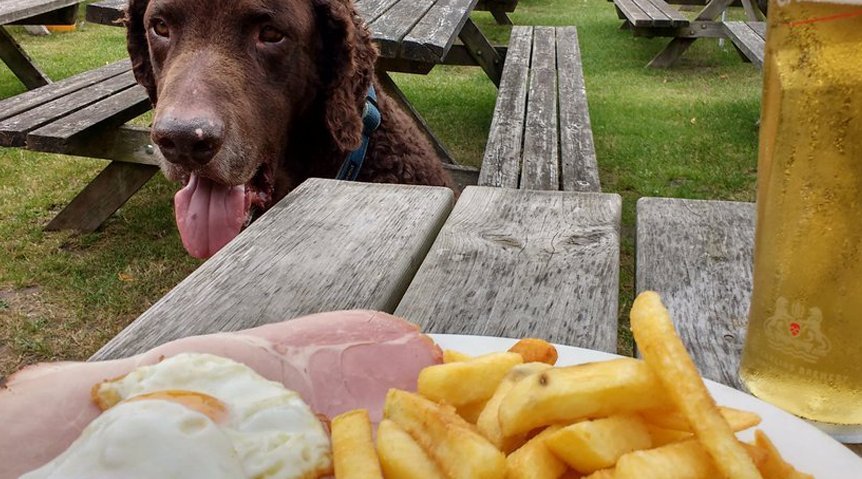Just like us, it’s easy for dogs to put on a few extra pounds if they consume too many calories and aren’t getting enough exercise, particularly as they get older. Recent studies have shown that canine obesity is becoming a serious problem in the UK whereby 1 in 3 dogs is overweight or obese.*
I have to admit that from time to time I am guilty of feeding my dog human snacks as a treat or reward. What I didn’t realise is that, as shown in the graphic below, what we consider a an insignificant snack – a McVities digestive, for example – given to a small dog as a treat, would take it over its recommended daily calorie intake by 19%, assuming it got its required amount from dog food (as you would expect)! Perhaps this would be OK as a one off, but two or three times a week could be the start of a slippery slope towards canine obesity.
As a therapist, part of my job is to help dogs to regain, maintain and improve their mobility. Carrying extra weight will have a detrimental effect on the joints, causing pain, and no amount of massage therapy will ‘fix’ this. Not only is mobility compromised when a dog is overweight, but those extra pounds place additional demands on virtually all their body’s organs, sometimes with significant consequences.
Food for thought.

The infographic above comes courtesy of Vetsure.
https://www.pdsa.org.uk/press-office/latest-news/2015/03/25/pet-obesity-set-to-soar-warns-vet-charity
